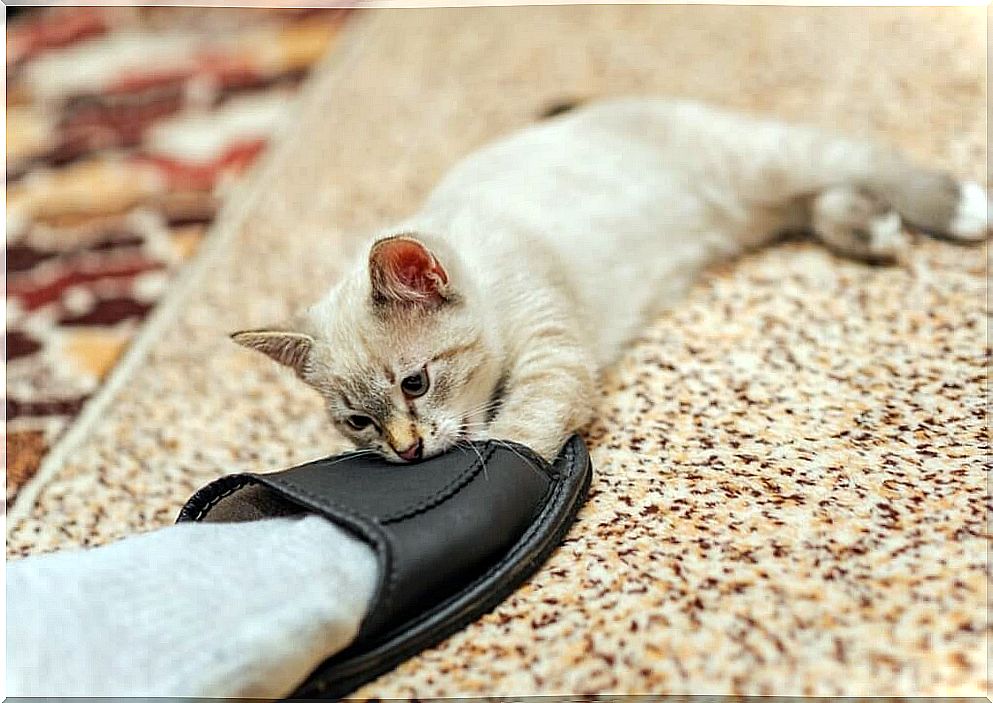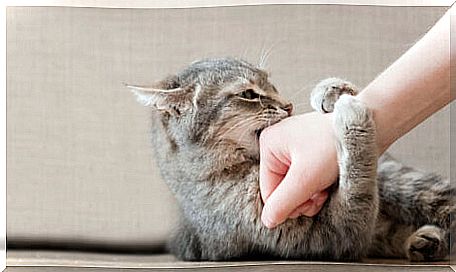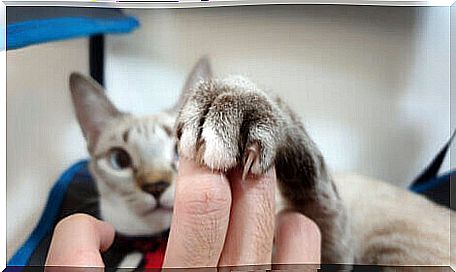Why Do Cats Bite Their Ankles?

Everyone who has lived with these felines has been the victim of some sneak attack of this type. But why do cats bite their ankles? In the following lines, we will provide all the information needed to understand this behavior.
This behavior can arouse some discomfort or concern as it can cause accidents. In order to avoid scares and fights, you will also find here some tips to correct this type of behavior in domestic cats.
the hunting instinct
Cats, despite having lived with humans for thousands of years, still retain their hunting instincts. In the wild, hunting cats spend a good part of their day looking for prey, as the bounty should be big enough that they can go several days without food if they can’t find anything else.
What does this have to do with the question of why cats bite their ankles? Well, domestic cats, in the absence of those stimuli that their instinct automatically seeks, will eventually find something to attack.
As you can imagine, feet are very attractive moving objects for a cat who doesn’t know what to do with his hunting instincts. So in the next section, we’ll describe this behavior in detail and introduce some other reasons why a cat bites its ankles.

Why do cats bite their ankles?
Above you read about cats’ preference for feet when looking for something to hunt. This is not isolated behavior, as there are other reasons for a cat to bite its ankles. Among them, we highlight the following:
- Boredom: If your cat is looking for something to hunt, he may lack stimulation in his environment.
- Emotion: the feline is not necessarily bored. If he’s too excited about a game, it could be that your feet are in his way.
- Draw attention: If you did something that bothered you, biting your ankles may be the cat’s way of expressing his anger. It can also be an aggression, a product of the discomfort caused by an illness.
As is always recommended in relation to this type of matter, when there is the slightest suspicion of an illness or behavior problem, it is most appropriate to consult a specialist. However, below you will find some tips to prevent your cat from biting his ankles frequently.
How to Fix a Cat That Bites Its Ankles
In the case of unsocialized dogs or cats, this behavior may not yet be established and can be corrected before it becomes a problem. Here are some tips for that:
- Add enrichment to the environment: The most common answer to why cats bite their ankles is that they get bored. Spend time with your pet, hide your food for him to look for, leave strong-smelling objects hidden around the house or play brain games. There are many options.
- Redirect the animal’s focus of attention: A useful way to get the cat off your feet is to carry a toy with you. When the animal is getting ready to jump, pick up the toy and throw it to play with it instead of your feet.
- Rule out illness: If the behavior persists, take the animal to the veterinarian to eliminate the possibility that the behavior is the result of a physical illness.
- Don’t reinforce the behavior: but beware, don’t punish it either. If the goal is to attract attention, the behavior of attacking the feet will become extinct if the animal does not receive feedback for it.

Final notes on why cats bite their ankles
It is often not possible to correct a behavior problem at home without help, while many other behaviors are not a psychological imbalance in themselves, although they can be uncomfortable for the tutor. As domesticated as they are, animals are still instinctive beings, so they sometimes do things that shock us.
Before living with a non-human animal, you should ask yourself if you can give it the attention it needs, especially when it comes to cats that come from critical life situations. In the face of difficulties, there will always be a professional to help you, so ask for help without fear if your pet’s behavior is conflicting.








